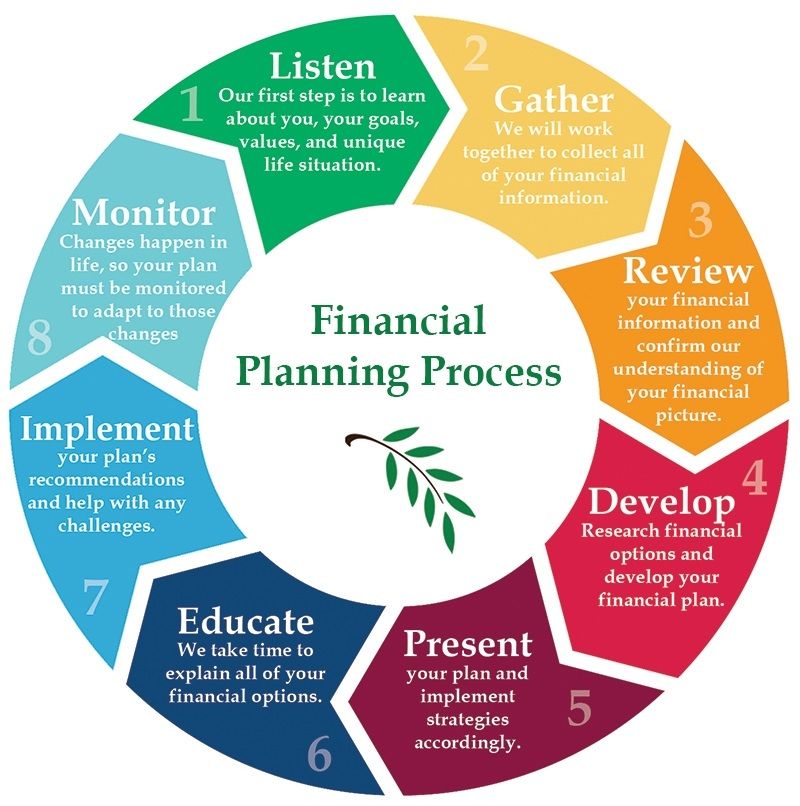
Building a Personal Financial Plan: Your Path to Financial Success
In today's complex and ever-changing financial landscape, having a personal financial plan is crucial to achieving long-term financial success. A well-crafted financial plan provides a roadmap for individuals to manage their money effectively, achieve their financial goals, and secure their future. Whether you are just starting your professional journey or nearing retirement, building a personal financial plan is a proactive step towards a more secure and prosperous future.
In this article, we will explore the key components and steps involved in creating a personal financial plan.
Set Clear Financial Goals: The first step in building a personal financial plan is defining your financial goals. These goals can be short-term, such as saving for a vacation, or long-term, such as buying a home or retiring comfortably. Setting specific, measurable, achievable, realistic, and time-bound (SMART) goals will provide clarity and motivation as you work towards them.
Assess Your Current Financial Situation: Before formulating a financial plan, it is important to assess your current financial situation. Take stock of your income, expenses, assets, and debts. This will give you a clear picture of where you stand financially and help identify areas that need improvement.
Create a Budget: A budget is a cornerstone of any effective financial plan. It helps you track your income and expenses, identify areas of overspending, and allocate your money wisely. Start by listing your monthly income sources and then categorize your expenses into essential (e.g., housing, utilities, food) and discretionary (e.g., entertainment, dining out).
Make adjustments as needed to ensure you are living within your means and saving for your goals.
Emergency Fund: An emergency fund is a crucial component of a financial plan. It acts as a safety net in times of unexpected expenses or income disruptions. Aim to save three to six months' worth of living expenses in a separate, easily accessible account.
This fund will provide peace of mind and protect you from financial setbacks.
Manage Debt: Debt can be a significant obstacle to achieving financial goals. Evaluate your current debts and develop a plan to manage and reduce them. Prioritize paying off high-interest debt first, such as credit card debt.
Consider strategies like debt consolidation or refinancing to make repayment more manageable.
Save and Invest: Saving and investing are essential for building wealth and achieving long-term financial security. Establish a systematic savings plan by allocating a portion of your income towards savings and investments each month. Take advantage of retirement accounts such as 401(k)s or IRAs, and consider diversified investment options like stocks, bonds, mutual funds, or real estate, depending on your risk tolerance and investment goals.
Insurance and Protection: Safeguarding yourself and your loved ones from financial risks is another critical aspect of a financial plan. Review your insurance coverage, including health, life, disability, and property insurance. Make sure you have adequate coverage to protect against unexpected events and potential liabilities.
Estate Planning: Although estate planning may seem far off, it is never too early to start considering it. Create or update important legal documents like a will, power of attorney, and healthcare directives. This ensures your assets are distributed according to your wishes and minimizes potential disputes or legal issues in the future.
Regularly Review and Adjust: A personal financial plan is not set in stone. It should be regularly reviewed and adjusted as your circumstances change. Life events, career changes, or shifts in financial goals may require modifications to your plan.
Set aside time annually to reassess your progress and make any necessary adjustments.
Seek Professional Advice: Creating a personal financial plan can be overwhelming, especially if you are unfamiliar with financial concepts and strategies. Consider consulting with a certified financial planner (CFP) or financial advisor.


